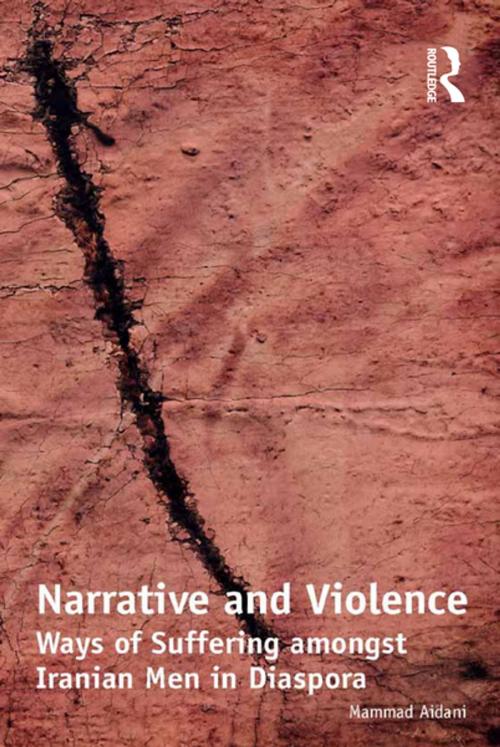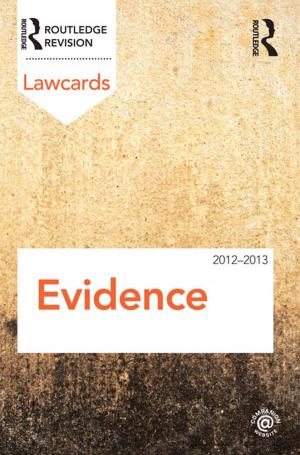Narrative and Violence
Ways of Suffering amongst Iranian Men in Diaspora
Nonfiction, Family & Relationships, Adolescence| Author: | Mammad Aidani | ISBN: | 9781317090632 |
| Publisher: | Taylor and Francis | Publication: | April 22, 2016 |
| Imprint: | Routledge | Language: | English |
| Author: | Mammad Aidani |
| ISBN: | 9781317090632 |
| Publisher: | Taylor and Francis |
| Publication: | April 22, 2016 |
| Imprint: | Routledge |
| Language: | English |
Narrative and Violence explores philosophical and anthropological ideas surrounding the nature of social suffering, its relationship to social, historical and political contexts and the manner in which diasporic communities narrate their suffering. Against the setting of the adverse relationship between Iran and the West, it examines the ways in which suffering shapes identity and belonging in the Diaspora for Iranians living in the West. Based on rich empirical information drawn from the UK and Australia, this book investigates ways in which the lives of Iranians living in the Diaspora are affected by the understanding of Iran in terms of abjection, as that which is beyond or outside of The West. Exploring the emotions and feelings of pain and suffering, as they are rooted in and shape various categories of experience, propounds a view of suffering which is thoroughly grounded in culture, history and politics. Presenting a new theoretical and cultural understanding of experiences of suffering, violence, war and displacement, this book contributes to critical debates within sociology, geography, anthropology history and cultural and critical theory.
Narrative and Violence explores philosophical and anthropological ideas surrounding the nature of social suffering, its relationship to social, historical and political contexts and the manner in which diasporic communities narrate their suffering. Against the setting of the adverse relationship between Iran and the West, it examines the ways in which suffering shapes identity and belonging in the Diaspora for Iranians living in the West. Based on rich empirical information drawn from the UK and Australia, this book investigates ways in which the lives of Iranians living in the Diaspora are affected by the understanding of Iran in terms of abjection, as that which is beyond or outside of The West. Exploring the emotions and feelings of pain and suffering, as they are rooted in and shape various categories of experience, propounds a view of suffering which is thoroughly grounded in culture, history and politics. Presenting a new theoretical and cultural understanding of experiences of suffering, violence, war and displacement, this book contributes to critical debates within sociology, geography, anthropology history and cultural and critical theory.















